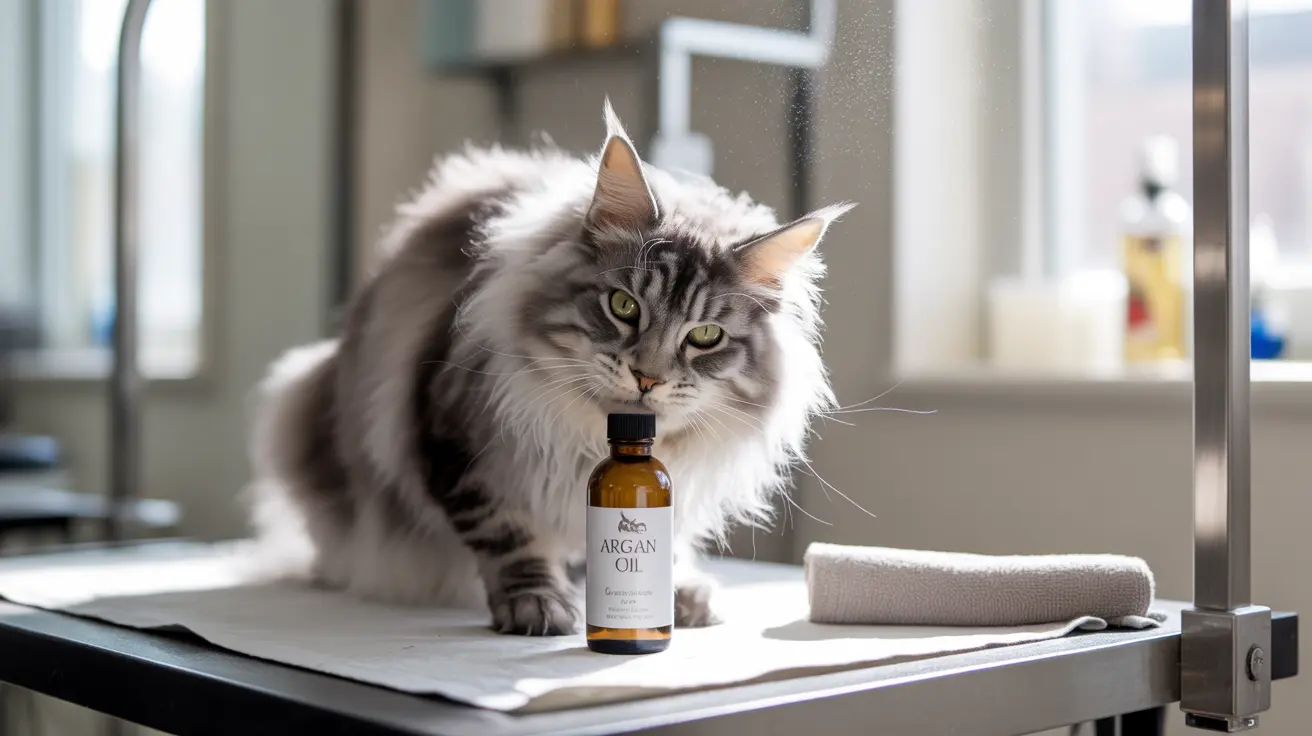As natural beauty products gain popularity, many pet owners wonder about using argan oil on their feline companions. This exotic oil, often called "liquid gold," has remarkable benefits for human hair and skin care. However, when it comes to cats, the safety of argan oil requires careful consideration.
In this comprehensive guide, we'll explore the potential risks and concerns surrounding argan oil use in cats, helping you make an informed decision about your pet's grooming routine.
Understanding Argan Oil and Its Properties
Argan oil comes from the kernels of the Argania spinosa tree, native to Morocco. Rich in vitamin E, essential fatty acids, and antioxidants, this oil has earned its reputation in human cosmetics. However, what benefits humans doesn't always translate safely to our feline friends.
The Risks of Using Argan Oil on Cats
The primary concern with using argan oil on cats stems from their grooming habits. Cats naturally lick their fur, meaning any topical product will likely be ingested. While pure argan oil itself may not be immediately toxic, several risks exist:
Ingestion Concerns
- Potential digestive upset
- Risk of choking or aspiration
- Possible allergic reactions
- Complications from additives in commercial products
Topical Application Risks
- Skin irritation
- Allergic reactions
- Coat matting
- Difficulty in proper grooming
Commercial Products and Hidden Dangers
Many commercial argan oil products contain additional ingredients that pose serious risks to cats. Essential oils, preservatives, and fragrances commonly found in these products can be toxic to felines. Cats lack certain liver enzymes needed to process these compounds safely.
Safe Alternatives for Cat Coat Care
Instead of experimenting with argan oil, consider these veterinarian-approved methods for maintaining your cat's coat health:
Natural Solutions
- Regular brushing
- Proper nutrition
- Veterinary-approved supplements
- Cat-specific grooming products
Signs of Product Reaction to Watch For
If your cat has been exposed to argan oil or related products, watch for these warning signs:
- Excessive drooling
- Vomiting or diarrhea
- Lethargy
- Skin irritation
- Respiratory difficulties
- Changes in behavior
Frequently Asked Questions
Is argan oil safe to use on my cat's skin or fur?
No, veterinarians generally advise against using argan oil on cats due to ingestion risks and lack of safety research. Cats will naturally groom and ingest any topical products, which could lead to health issues.
What are the risks if my cat ingests argan oil?
Ingestion of argan oil could cause digestive upset, including vomiting and diarrhea. The biggest concern comes from additional ingredients often found in argan oil products, which may be toxic to cats.
Can argan oil mixed with essential oils be toxic to cats?
Yes, essential oils commonly mixed with argan oil can be extremely toxic to cats. Cats lack the liver enzymes necessary to process these compounds safely, potentially leading to severe health complications.
What signs should I look for if my cat has been exposed to argan oil or essential oils?
Watch for drooling, vomiting, lethargy, difficulty breathing, muscle tremors, skin irritation, and uncoordinated movements. If you notice any of these symptoms, seek immediate veterinary care.
Are there safer alternatives to argan oil for maintaining my cat's skin and coat health?
Yes, focus on cat-specific grooming products, regular brushing, and a balanced diet rich in essential fatty acids. Consult your veterinarian for recommended products specifically formulated for feline use.
Conclusion
While argan oil offers numerous benefits for human use, it's best to avoid using it on your cats. The risks outweigh any potential benefits, especially given the availability of safer, veterinary-approved alternatives. Always prioritize products specifically formulated for feline use and consult with your veterinarian about the best options for your cat's coat care.






